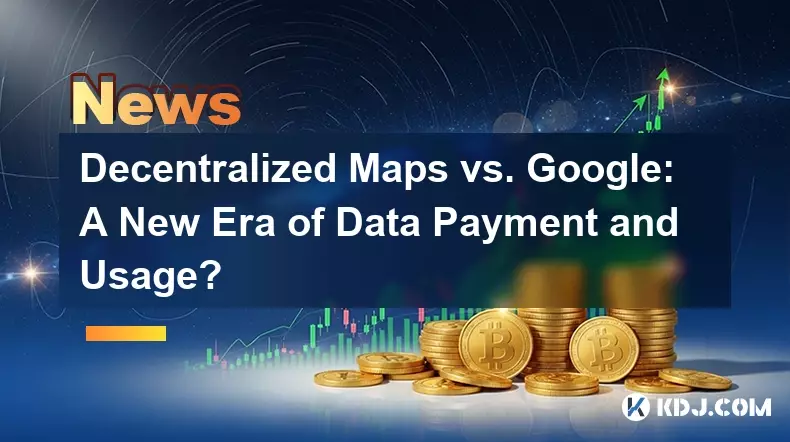Dive into the world of decentralized maps, data payment models, and their potential impact on Google's dominance. Discover how blockchain and community contributions are reshaping mapping.

Decentralized Maps vs. Google: A New Era of Data Payment and Usage?
The mapping landscape is shifting. Forget relying solely on Google Maps; a new wave of decentralized mapping networks is emerging, promising real-time updates, community ownership, and, crucially, data payment for contributors. Can these challengers really take on the Google behemoth? Let's dig in.
The Rise of Decentralized Mapping
Projects like SenseMap and Bee Maps are leading the charge. SenseMap, built on OpenLedger, incentivizes users to contribute real-time information—think safety alerts, crowd levels, and noise reports—verified on-chain. Bee Maps, powered by Hivemapper, uses AI-enabled dash cams to capture street-level imagery, rewarding drivers with $HONEY tokens for their contributions.
Bee Maps recently secured a whopping $32 million in funding, signaling serious investor confidence in the decentralized physical infrastructure (DePIN) sector. This funding aims to expand their global contributor network, scale infrastructure, and bolster AI models for processing map data.
Data Payment: A Game Changer
The key differentiator? Data payment. Unlike Google Maps, where data is passively collected, these decentralized platforms reward contributors. Bee Maps incentivizes contributions with its native token, $HONEY. This model could revolutionize how map data is gathered and maintained, especially in areas where traditional mapping falls short.
Google's Reign: For How Long?
Alphabet's Google Services, which includes Maps, Search, and Google Play, raked in a hefty $82.5 billion in Q2 2025. While Google doesn't break out Maps revenue, analysts estimate it could be generating billions annually. The question is: can decentralized alternatives carve out a significant piece of the pie?
Accuracy Through Decentralization
One concern is accuracy. Can a decentralized model maintain data quality? OpenLedger's Ram Kumar argues that on-chain reputation, staking, and validator review ensure accuracy. Spammers are economically disincentivized. Arie Trouw of XYO emphasizes reproducibility: when multiple independent nodes reach the same result through cryptographic proofs, accuracy is established by consensus, not control.
My Take: A Promising Disruption
I'm optimistic about the potential of decentralized mapping. The combination of real-time updates, community ownership, and data payment is compelling. Centralized systems often struggle to keep up with rapidly changing environments. By incentivizing contributions from everyday users, decentralized maps can offer a more accurate and up-to-date view of the world. Consider disaster zones or rapidly developing urban areas – these are precisely the places where real-time, verifiable updates are most critical. As Bee Maps’ Ariel Seidman put it, "Demand is not the problem — supply is." The challenge now is scaling these networks and ensuring data quality.
The Future is Mapped Out... Differently
So, will decentralized maps dethrone Google? Probably not anytime soon. But they offer a compelling alternative, especially for niche applications and areas underserved by traditional mapping. It's an exciting space to watch, and who knows, maybe one day we'll all be earning crypto just for navigating our daily commutes. How cool would that be?























































































